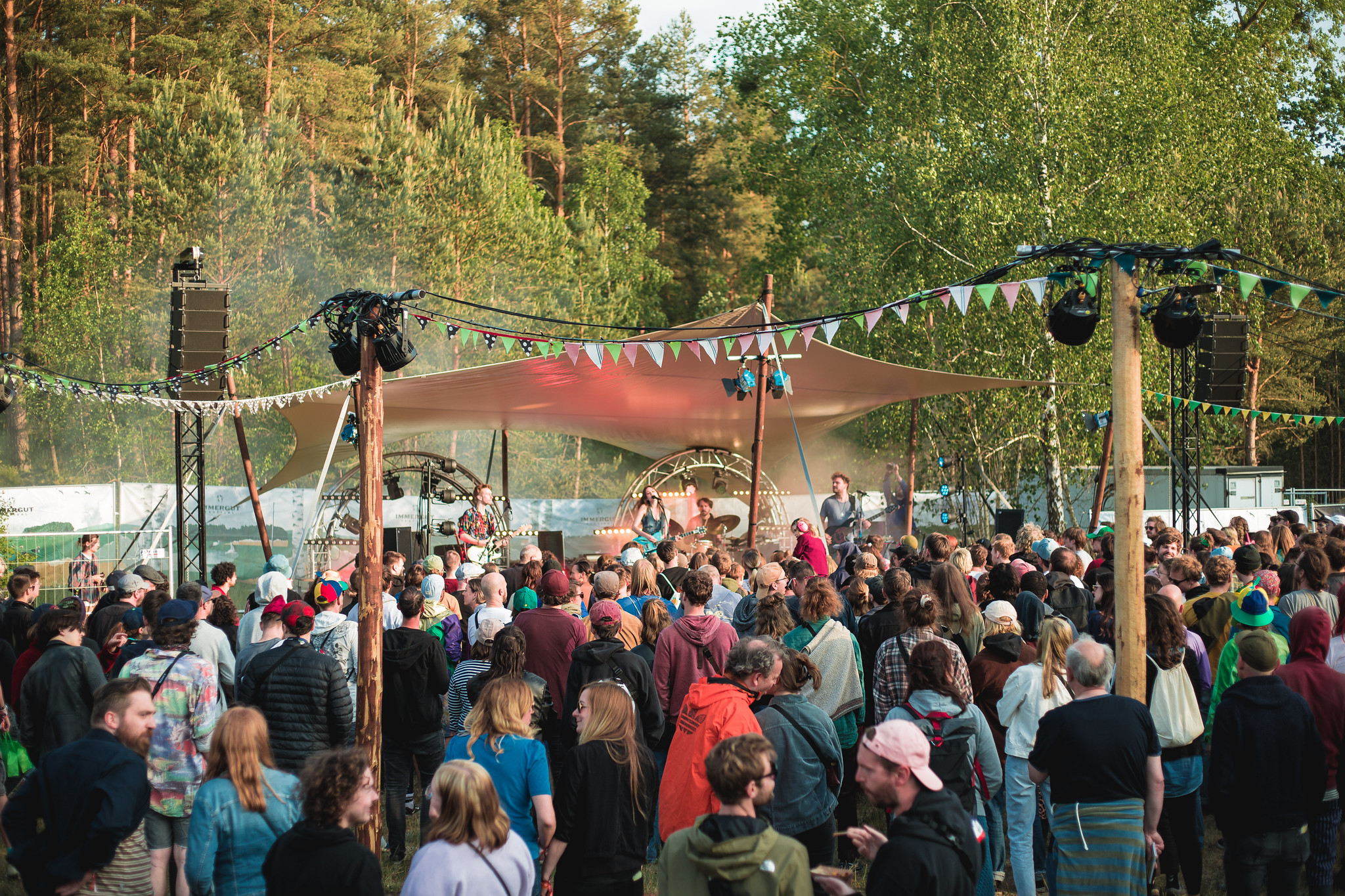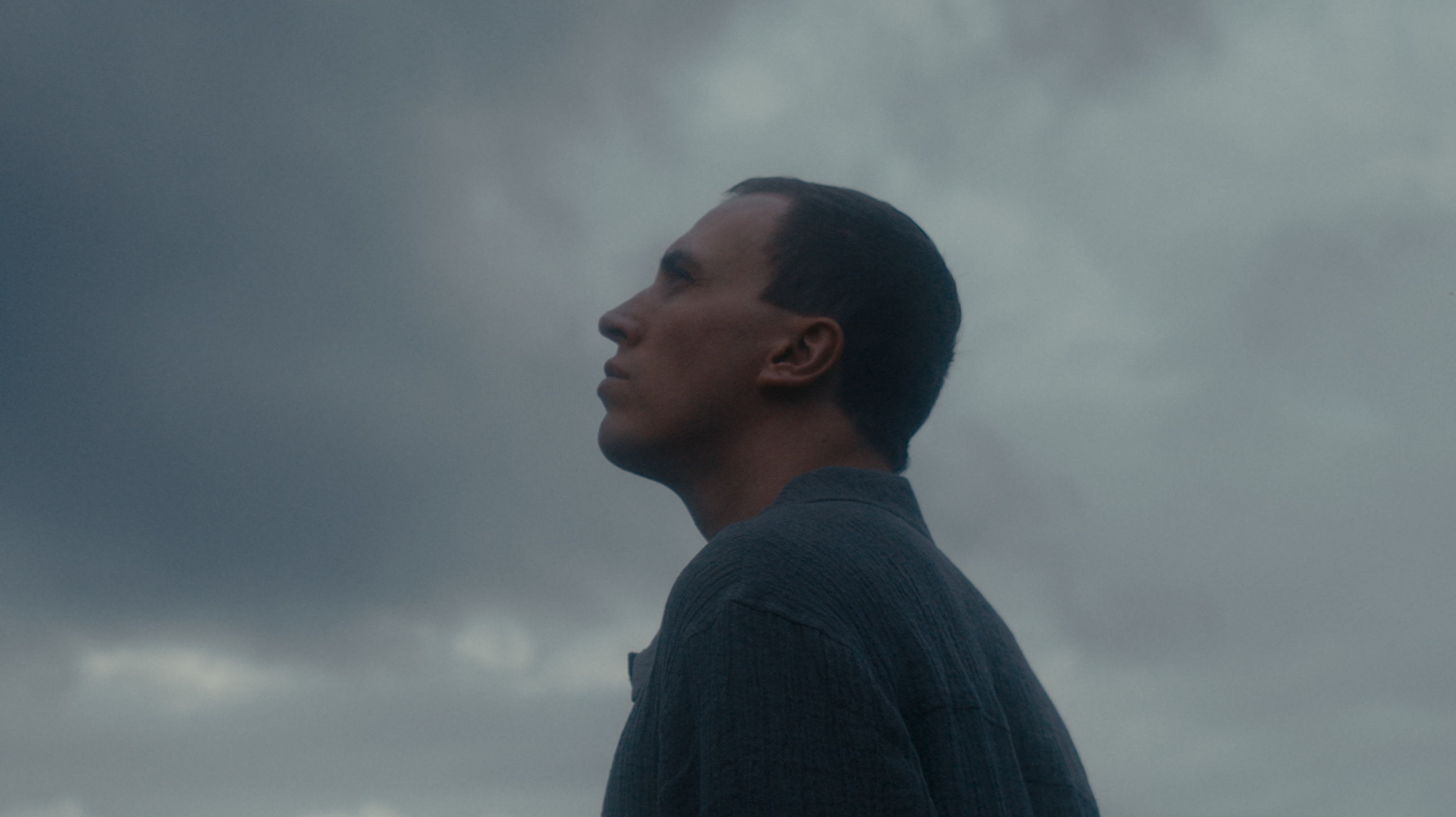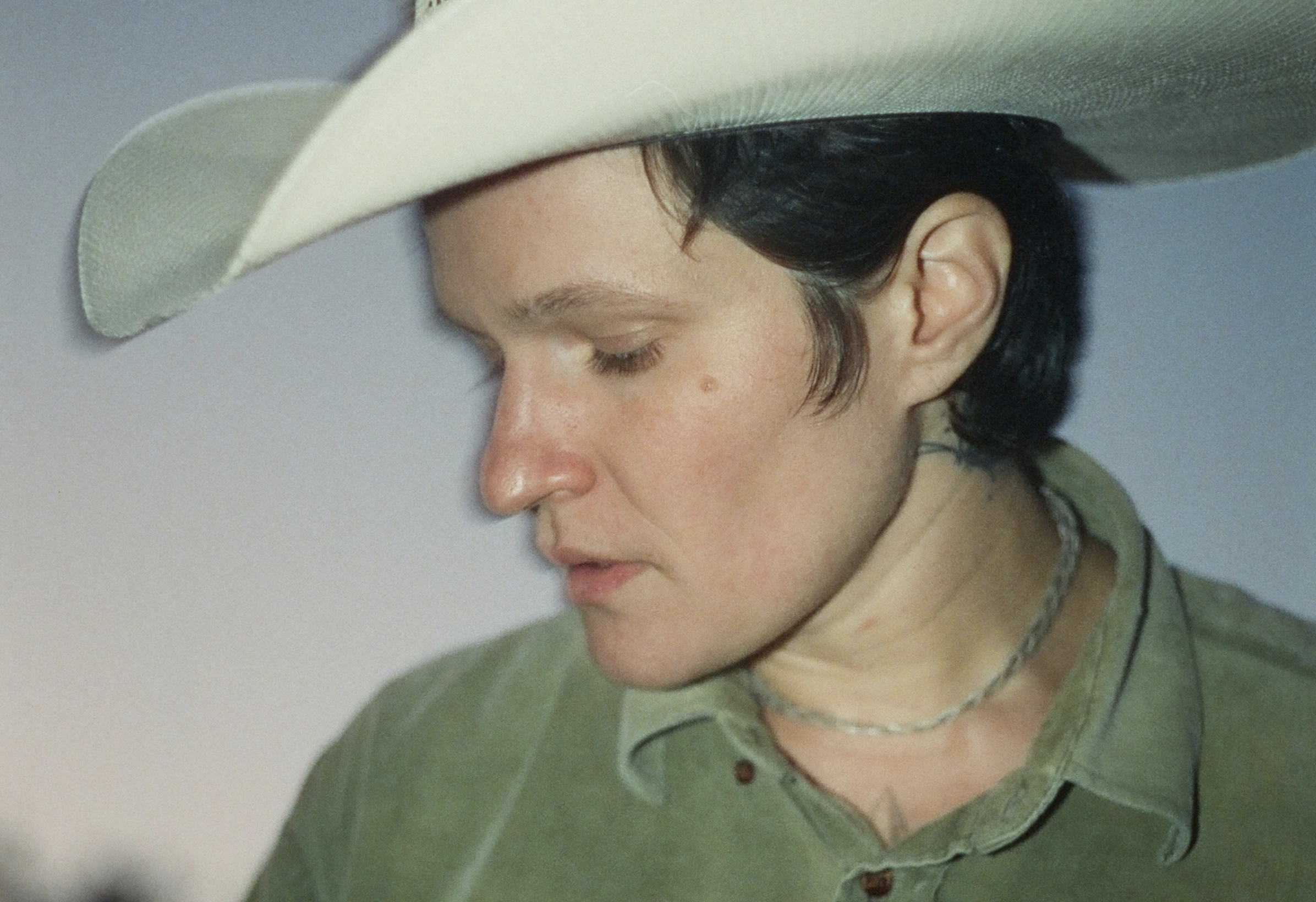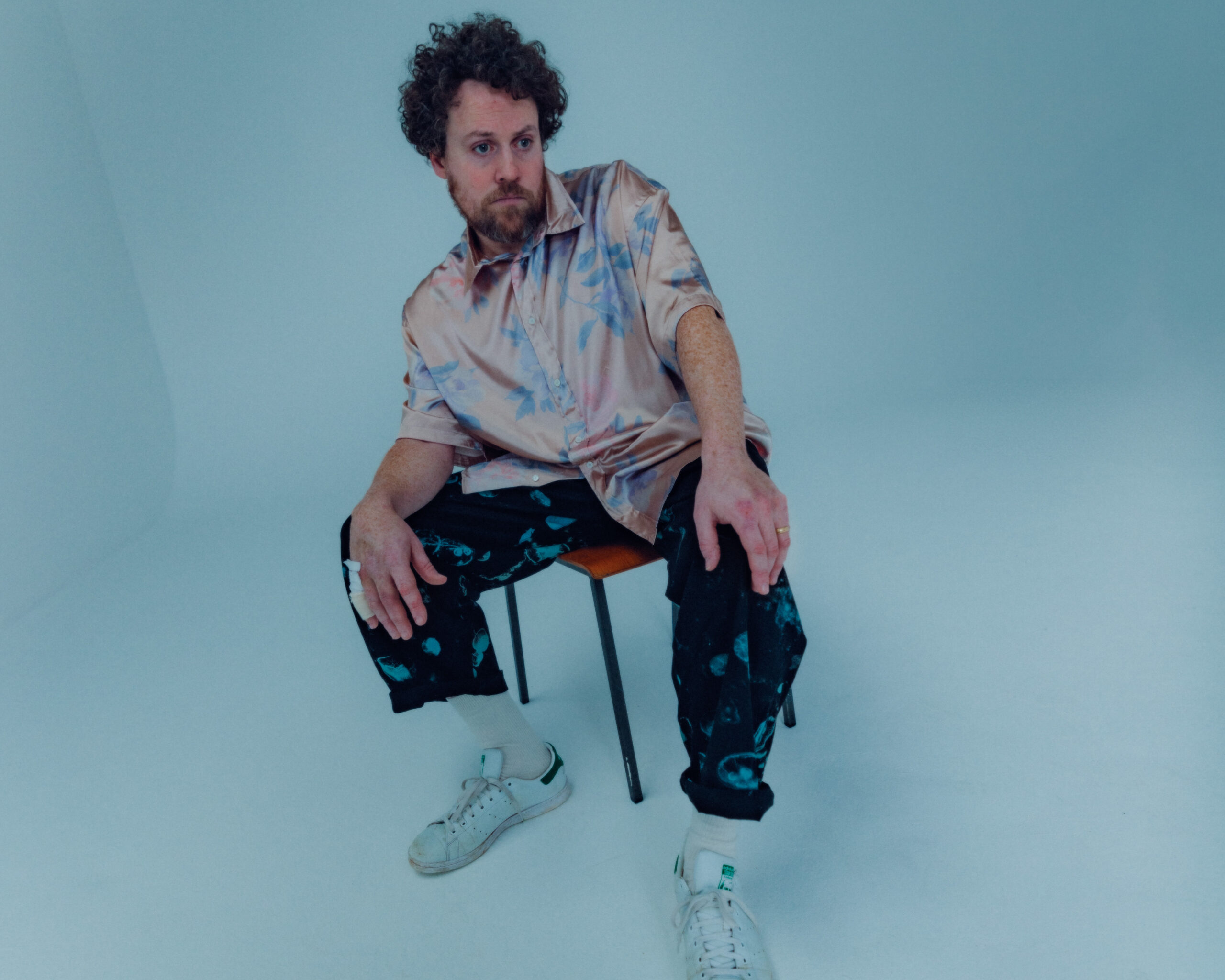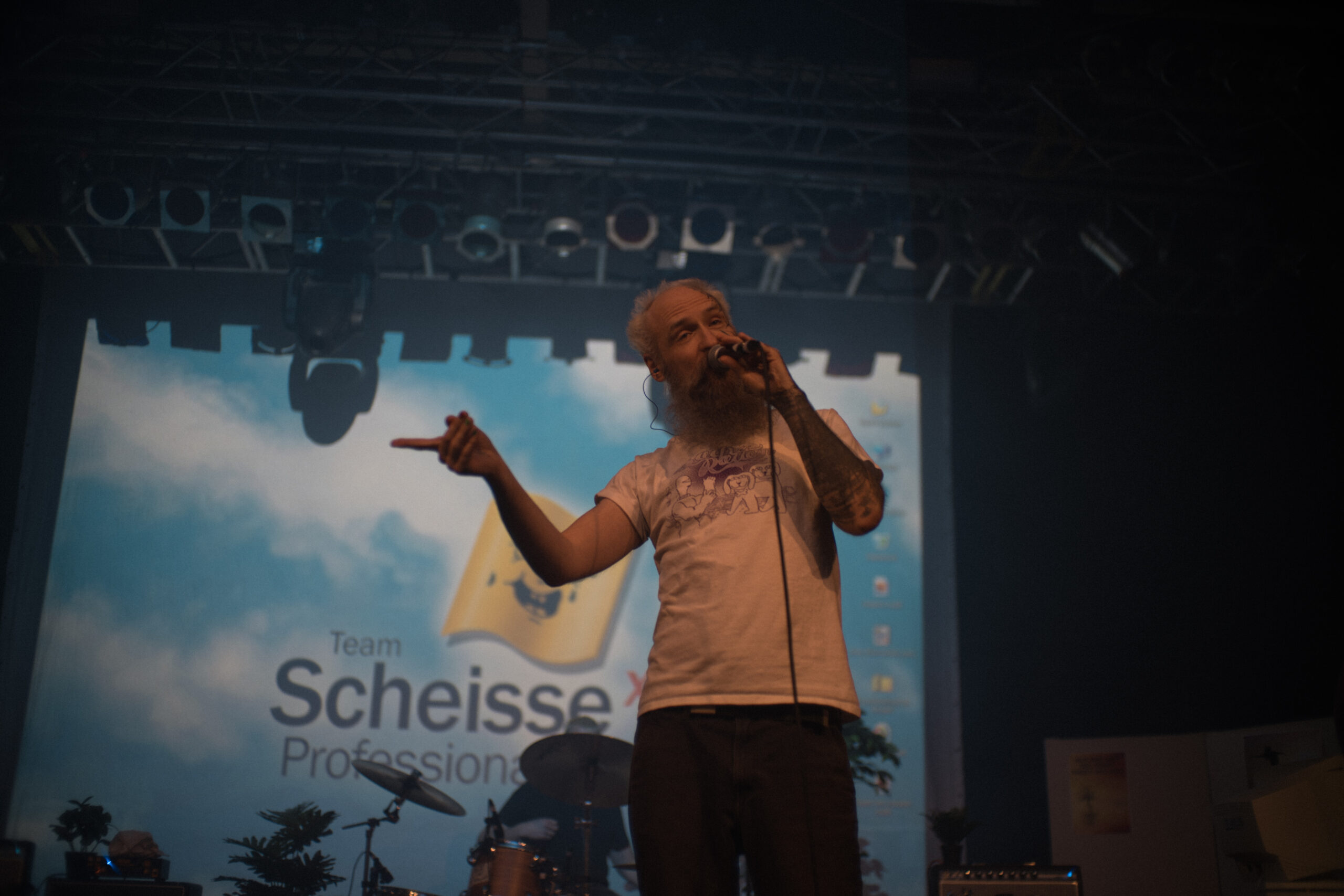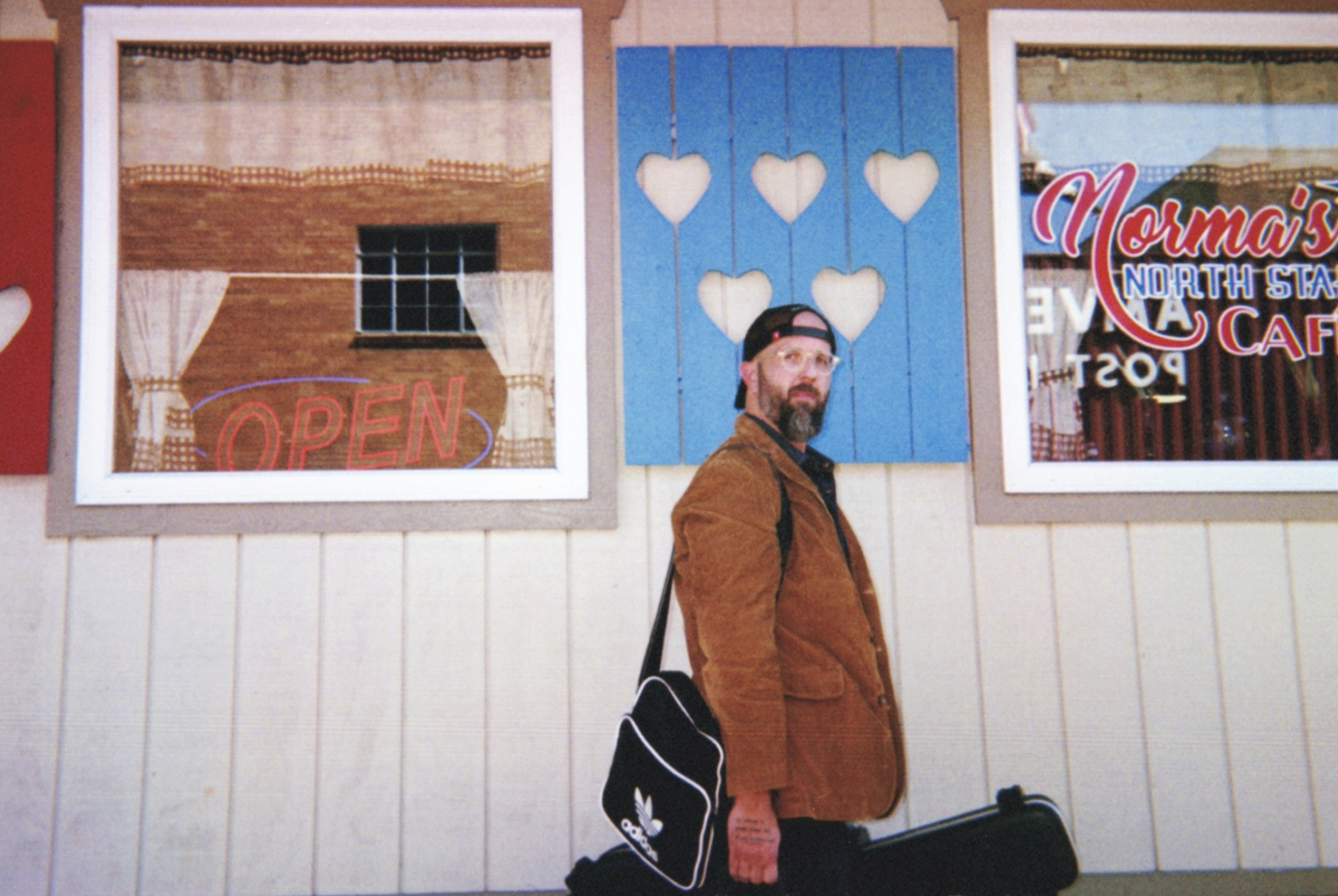Foto-© Daniel Topete
Die 25jährige New Yorkerin Sabrina Teitelbaum wird in Ihrer Künstlerinnen-Bio als Songschreiberin ohne Angst bezeichnet. Wie sehr das zutrifft, kann man seit letztem Freitag auf ihrem Debütalbum Blondshell nachhören, das via Partisan Records erschienen ist.
Teitelbaum wuchs in einem Classic-Rock-begeisterten Haushalt auf. In einer Ära des glatten Teenager-Radio-Pop waren die Rolling Stones ihre prägende Kindheits-Obsession. In der High School entdeckte sie neue Indie-Rock-Bands, indem sie mit einem gefälschten Ausweis in der Hand die Websites von New Yorker Locations durchstöberte eine Faszination, die in ihr die Liebe zu direkten und intensiven Texten weckte, die ihre Musik heute auszeichnen. Doch als Teitelbaum 2015 nach Los Angeles zog, um Musik zu studieren, schlug sie einen anderen Weg ein. Sie schrieb sich im Pop-Programm der USC ein, brach ihr Studium zwar ab, blieb der Pop-Welt jedoch erst einmal treu. Trotz fertiger EP tat sie sich jedoch schwer, hier wirklich anzukommen. Während der Pandemie erlaubte sie sich, Songs nur für sich selbst zu schreiben, ohne daran zu denken, dass sie diese veröffentlichen würde. Dieser Prozess hat sie ermutigt. Der Entzug des Außenblicks wurde zum Katalysator für die klaren Songs von Blondshell.
Wir haben vor einer Woche mit Teitelbaum aka Blondshell über Zoom gesprochen. Im Interview erzählt sie von der Freiheit, ohne Druck und Außensicht zu schreiben und wie sie sich plötzlich in den Blondshell-Songs wiedergefunden hat. Wir sprechen über das Verhältnis von Kunst und Beruf als Musikerin, die Erwartungen an ihr Debütalbum und darüber, wie Frauen wie PJ Harvey und Courtney Love ihr gezeigt haben, dass Wut etwas Schönes haben kann.
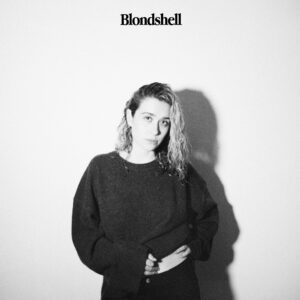 The release of your first album Blondshell is in two days. Does that even feel real?
The release of your first album Blondshell is in two days. Does that even feel real?
No, because I have had these songs for a long time. Even when we decided that they are going to come out on April 7th, that sounded so far away. I thought, it will never happen and I will not live to see that day. But here it is. I am excited to share the music with everybody.
You have been with the songs for quite a while, but it is not a typical debut album as a collection of your best tracks since you have started writing music. The songs were written in a relatively close time frame.
Yes. I have written a lot of other stuff before. When I started writing these songs, I felt like this is who I am. I finally figured out who I am as a musician. That is when I decided to throw everything away from before and start over.
Have you felt the shift before writing these songs or was it within the process?
It was with the songs. I started writing and I really liked what was coming out. It felt like the music I listen to, I felt like I was able to articulate my feelings.
If you could for one thing for the album, what would be your most perfect outcome?
I think, it is happening already. I am not focused on numbers. If you are, there is no way of ever feeling satisfied. I just want people to connect. I would like a couple of people to feel moved by the music, to feel helped and understood by it. I feel like that has been happening through the shows. I feel very lucky and grateful about how the album is coming out.
It sounds like a very free process to be able to write music without thinking about the release and financial success.
You have to make it work as a job, too. It is not that I do not think about it, I just do not orient my goals around that. I want to feel personally satisfied when people emotionally connect to it. The viability of it as a job is a separate thing. In terms of when I am going to be proud of myself, I do not want to orient that around numbers.

One reason why people connect to your music are your vulnerable and very literal lyrics. I imagine it to be scary to be so blunt to yourself – let alone thousands of people.
It is not intimidating for strangers, it is more intimidating for people I know and do not say those things to: family, friends, people I work with… I know them and I have a close personal relationship with them, but I still would not say any of that intimate stuff to them. That is hard. But I got a little de-sensitized now. Music is so personal and so intimate and for everyone in the world to hear that before I meet them or after I meet them can be difficult. But I think I am getting used to that.
Is that what your bio refers to calling you a songwriter without fear?
No, I think that came before putting these songs out. It came from being in isolation in the pandemic. I felt like out of sight, out of mind. I had no fear, because I was going to write whatever I wanted in my apartment alone and nobody was going to hear it. I wrote all these songs and then I thought, “Fuck it, I am going to put them out.” This time has helped me to feel de-sensitized and not too afraid.
So, the topics and the sound of Blondshell are a product of the pandemic and isolation?
Yes. The pandemic was horrendous and really devastating. I think that very beautiful art came out of it as well. Obviously, it was not worth it. But when something like that is going on, people are turning to art. That is what I did. I was freaked out. It was scary for everybody. Now we all talk about it in a more casual way than it felt at first. I mean we were scared to go to the supermarket. But people were making such beautiful music in response to the fear and the devastation. I was inspired by what other people were doing and by books I was reading because I had so much time. My music partially came out of that. Which is complicated.
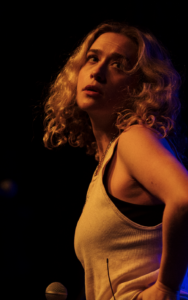 For your inspiration you also looked back to the 1990s. I am thinking of PJ Harvey and Hole for example. Have they always been around for you or was it a new or a re-discovery during those isolated times?
For your inspiration you also looked back to the 1990s. I am thinking of PJ Harvey and Hole for example. Have they always been around for you or was it a new or a re-discovery during those isolated times?
I have always been interested in them. But because of the massive legacy that those artists have, I did not form as much of a personal relationship. In the pandemic I went back and wanted to rediscover these as an adult. The stuff PJ Harvey and Courtney Love are singing about is not stuff that I would have connected to with being 15, 12, or 10 years old. But as an adult, I really feel and understand it in a way I did not before. It inspired me a lot and had a huge impact on my album.
These are interesting inspirations, considering that before Blondshell you worked on pop music. Did those times leave something behind in your current music as well?
Yes, in the structure of some songs. I like pop music a lot. I love Taylor Swift, I love Gracie Abrams. All these people, who are doing pop right now, are awesome. Making good pop music is so hard. I am always impressed by people who do it. I like pop melodies and I think they come out in the songs.
It is interesting to see that you are leaving a genre to make something completely different and still take some things with you.
Yes, you can the girl out of pop, but you cannot take pop out of the girl.
Your current music seems to fulfill you, but as you said, it is also a job. Is it scary to have something that is so deeply connected to yourself and knowing that there is some pressure in doing it, because it is work?
It is a complicated job, because there is not really a boundary between my personal and my work life. For musicians, that does not exist. That part is scary. You cannot compartmentalize and say, you are done with work at 8pm. But right now, it is just a positive thing. I feel so lucky to be able to do it and so grateful for everybody who has been giving me chances to continuing to do so.
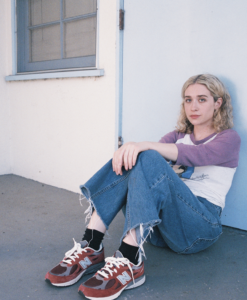 One topic that stood out to me listening to the record was rage – female rage. That is an interesting concept, especially thinking about it historically. Do you feel like your songs empower to be able to feel that rage? Do you want to show that is okay to show rage in a public space as a young woman?
One topic that stood out to me listening to the record was rage – female rage. That is an interesting concept, especially thinking about it historically. Do you feel like your songs empower to be able to feel that rage? Do you want to show that is okay to show rage in a public space as a young woman?
Absolutely. Songs by women have helped me to get in touch with that. Everybody has anger. Everybody has rage. Because of how fucked up the world is. I had no idea that it was okay to express it. You cannot go around expressing it, you cannot go around screaming. At least I did not feel like I could. I did not have anywhere to take it out. It feels so liberating to finally talk about that in my music and to feel like anger is not so ugly. It is always portrayed as an ugly thing for women. I think, when I saw Courtney Love and PJ Harvey doing it, I thought, “It does not seem ugly on them.” This can be very beautiful and helpful for people and for me.
Related to that is your openness about unhealthy relationships with people or substances. Again, it needs a lot of strength to say things like that about people and about yourself publicly. Did this process of being ready to say it and being ready for people to hear it come with writing the songs or was it the beginning of the writing process?
It was gradual. It would have been too scary to write the music and simultaneously decide that everyone is going to hear it. I would not have the freedom to say these things if I thought that people are going to hear it. When I was writing I told myself that no one was going to hear that stuff. Then I made it, and I was proud of it. It brought me peace and confidence and that is when I said that I am going to share it with people.
Thank you for the interview!
Blondshell Tour:
15.05.23 Köln, Helios37
17.05.23 Berlin, Privatclub
18.05.23 Hamburg, Molotow Skybar


